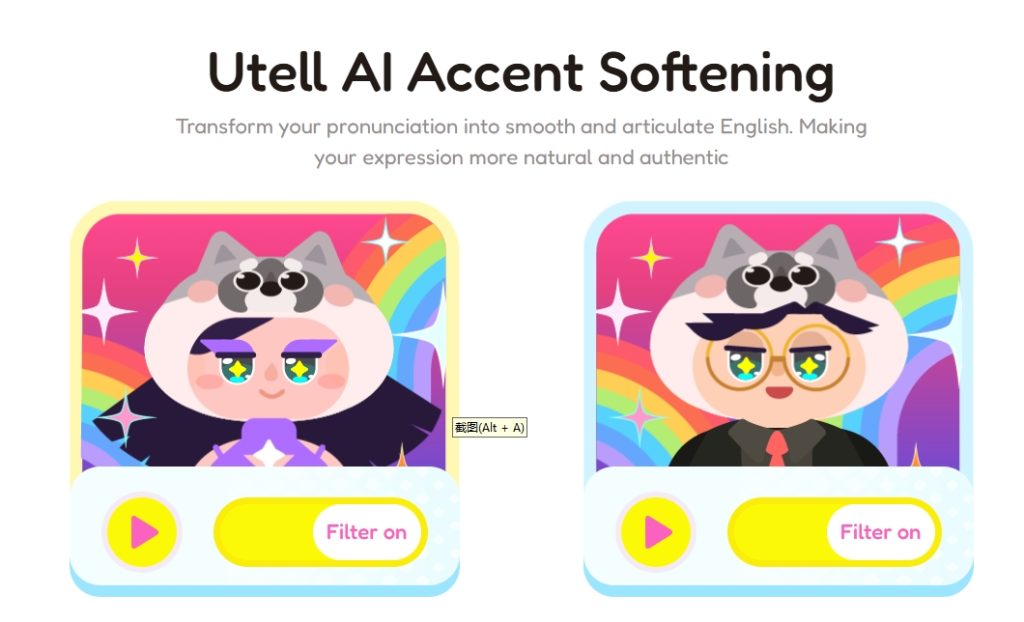If you have ever wondered how did the American accent develop, you are not alone. The American accent began in the early 1600s when English-speaking settlers arrived in North America. Over the next 200 years, people from various regions of Britain blended their ways of speaking. By the mid-1700s, Americans spoke differently from British English. Even today, the American accent continues to evolve. For instance, in Georgia, the famous Southern drawl has become less common with each new generation:
| Generation | Accent Trend in Georgia (Southern Drawl) |
|---|---|
| Baby Boomers | Most common |
| Gen X | Less common |
| Millennials | Even less common |
| Gen Z | Rare |
You play a role in shaping language every day. When you ask how did the American accent develop or where it is headed, you become part of a long history of change. Perhaps you have noticed how the American accent has shifted in your own family or community.
- The Origins of the American Accent
- Key Historical Shifts in the American Accent
- Modern American Accent and Their Diversity
- The Future of the American Accent
- Enhance Your American Accent Level with Utell AI
The Origins of the American Accent
Influences from British English
People in the United States sound different from people in England. The first English settlers brought their language to America. Their way of speaking changed over time. Some words and sounds stayed like British English. Others became different. Americans kept the “r” sound at the end of words like “car.” Many British speakers do not say the “r” at the end.
Did you know? The American “r” is called a “rhotic” sound. Most British accents are “non-rhotic,” which means they leave out the “r” at the end of words.
You can still hear British English in some American accents. People from Boston or New York have sounds that remind you of England. These early changes helped make the first American accents.
Indigenous & Immigrant Contributions
Native Americans lived in America before the English came. Their languages changed place names and how some people spoke. Later, immigrants from many countries moved to America. They brought their own languages and accents.
- German, Irish, Italian, and African languages mixed with English.
- Each group added new words, sounds, and ways of speaking.
- This mix made even more different accents in America.
Some words in American English come from other languages. For example, “cookie” comes from Dutch. “Barbecue” comes from Spanish. These words show how many cultures shaped American speech.
Isolation & Regional Variation
America is a very large country. In the past, people lived far from each other. It was hard to travel, so towns stayed apart. This made it easy for new accents to form. People in New England, the South, and the Midwest all sounded different.
If you travel across the United States, you will hear many accents. Some are strong, like the Southern drawl or the New York accent. Others are softer, but you can still tell them apart.
Regional variation is a big reason for many American accents. Even with technology and travel, you can still find unique ways of speaking everywhere.
Key Historical Shifts in the American Accent
Post-Revolutionary Changes
After the American Revolution, accents started to change. People wanted to sound less British. Many Americans began saying the “r” at the end of words. This made their speech different. Some words, like “herb,” lost the “h” sound. Other words kept it. These changes helped make an American identity. People in different places spoke in new ways. Cities changed accents quickly. Rural areas changed more slowly.
Westward Expansion & the ‘Melting Pot’
When people moved west, they took their accents with them. Imagine families traveling together, each talking differently. When they settled, their speech mixed with others. This created new accent changes. The United States became a “melting pot” of languages. Immigrants from Germany, Ireland, and Italy added their voices. African Americans and Native Americans also changed how people spoke. Over time, towns had many different accents. Some accents disappeared. Others became stronger.
Technological Influences
Technology has changed how people hear and use accents. In the past, you learned to talk from family and neighbors. Now, you hear voices from all over on TV and the internet. TV, radio, and the internet spread certain ways of speaking. Today, AI can even change your accent as you talk. Some call centers use tools to make workers sound “standard.” These tools often use white mainstream speech. This can make accents less diverse. Scientists use special recordings to study accent changes. They look at how kids learn to speak in different places. Computers can now compare speech samples. This helps researchers see how accents change. They can find out why some accents change faster than others.
Tip: Next time you watch TV or talk online, listen for accent changes. You might notice how technology affects the way people talk!
Modern American Accents and Their Diversity
Major Regional Accents
You might notice that people sound very different depending on where you travel in the United States. Some regions have distinct accents that stand out right away. For example, the southern accent in Texas or Georgia sounds warm and drawn out, while the New York accent feels fast and sharp. The Telsur Project mapped out four main regions: Inland North, South, West, and Midland. Each area has its own vowel sounds and speech patterns. You can hear the Northern Cities Shift in places like Chicago, which makes words like “cat” sound more like “kyat.” In the South, the southern accent often stretches vowels, so “ride” can sound like “rahd.” Even though some regional accents are fading, you still find different ways of speaking in every corner of the country.
Fun Fact: The southern accent is not just one sound. It changes from state to state, and even from city to city!
Sociolinguistic Factors
Why do some people keep their accents while others change? The answer often comes from work, school, and social life. If you work in technology or a big company, you might notice fewer southern accent features. People sometimes change how they talk to fit in with their job or friends. Studies show that accents can signal class, job type, or even personality. For example, in some southern cities, people in professional jobs use fewer traditional southern accent features than those in other industries. Kids also pick up accents from their friends, not just their families. Over time, these choices shape how distinct accents grow or fade.
Pronunciation Trends and Slang
Accents keep changing, and so does the way you say words. Young people often lead the way with new slang and fresh pronunciation. You might hear “y’all” in the South or “hella” in California. Some words get shorter, and some sounds drop off. The southern accent, for example, sometimes turns “pen” into “pin.” Social media spreads new slang quickly, so you can hear the same words in different states. Even with all these changes, American accents stay full of life and variety. You help create new trends every time you talk with friends or post online.
The Future of the American Accent
Ongoing Trends
You may see that strong accents are not as clear now. The southern accent and Boston sound are less easy to notice. People move a lot and hear many voices every day. When you talk online or watch videos, you learn new ways to speak. This makes accents mix together. Some things, like long vowels in the South or missing Rs in Boston, are not as common with young people.
Look at this table to see how hearing many accents changes what people notice:
| Listener Group | Exposure Context | Accent Perception Findings |
|---|---|---|
| Monolingual US English listeners in diverse linguistic contexts | High exposure to multiple accents | Increased classification accuracy of native and L2 accents, showing accent blending and perceptual adaptation |
| Monolingual US English listeners in homogeneous linguistic contexts | Low exposure | Lower classification accuracy, less perceptual adaptation |
| Bilingual native speakers of non-Asian languages and English | Multilingual exposure | Enhanced ability to classify accents, reflecting influence of multilingualism |
| Native speakers of Asian languages who are L2 English speakers | L2 immersion and native language competence | Best classification accuracy for accents aligned with their own language family and geographic region |
The table shows that hearing many accents helps you understand them better. People who speak more than one language often mix sounds from different places. Over time, this makes new accents in different parts of the country.
You can see this when families move to new states. Kids sound more like their friends than their grandparents. Even if you stay in one place, your accent can change as you meet new people or watch new shows.
Predictions from Linguists
Linguists look at how accents change over time. They see some big changes happening now:
- The low-back-merger shift is growing in the South and Northeast. More people say “cot” and “caught” the same way.
- In Georgia, researchers listened to people born from 1887 to 2003. They found the southern accent is fading, especially between Baby Boomers and Gen Xers.
- Other places are changing too. People in New England say more Rs now. People in Michigan change their vowel sounds. Texans do not sound as twangy as before.
- These changes happen because people move, make new friends, and mix in schools. Media and technology help, but people copy how their friends talk even more.
- Since the 1980s, most Americans move within the same county or state. This slows accent change, but it does not stop it. People still share new ways of speaking.
You might wonder if everyone will sound the same one day. Linguists think big regional accents will stay, but they will keep changing. The idea of “General American” as a plain accent is not as strong now. People value the many ways Americans speak. This shows a changing American identity, where your voice shows where you are from and who you want to be.
The Role of Technology in Language Change
Technology changes how you talk, sometimes without you knowing. Early speech-recognition systems made people change how they spoke. They had to slow down and say words clearly. Sometimes, they dropped their natural accent. Over time, technology learned to understand more voices and accents. Now, your phone or computer can understand many ways of speaking.
People and machines change each other’s speech patterns. You might say a word differently so your device understands you. At the same time, technology learns to understand your normal speech. This back-and-forth helps mix accents and makes speech more flexible.
Social media spreads new words and sounds quickly. When you post a video or join a chat, you hear slang from everywhere. You might use a phrase from California or a sound from New York without thinking about it.
Tip: Next time you use voice commands or talk to a smart speaker, listen to how you speak. Do you change your accent or slow down? You are helping technology and language grow together.
As you look ahead, remember that accents will keep changing. You help shape the future every time you talk, listen, or connect with others. The American accent will always show the people who use it—different, creative, and always moving forward.
Improve Your American Accent with Utell AI
If you’re looking to speak English like a native and master an authentic American accent, traditional learning methods may not be enough. Utell AI combines state-of-the-art artificial intelligence and innovative speech training technology to help users achieve noticeable improvements—faster and more effectively than ever.

Utell AI Features
1. Instantly Sound More American in Any Situation
With Utell AI, you don’t need hours of practice or complicated exercises—just turn on the software, and it immediately refines your speech to sound more like a native American English speaker, whether you’re in an online meeting, on a phone call, or chatting on any digital platform.
2. Real-Time Accuracy for Professional and Everyday Communication
Utell AI works live, ensuring your accent sounds clear, confident, and authentically American as you speak. This is perfect for business presentations, client calls, interviews, and even casual conversations, helping you make a stronger impression every time.
3. Effortless Integration into Your Workflow
There’s no need for manual adjustments or switching between tools. Utell AI runs seamlessly in the background, transforming your accent automatically—so you can focus on your message, not your pronunciation.
4. Boost Your Confidence Instantly
Knowing that your accent is being enhanced in real-time gives you the confidence to speak up, participate actively, and communicate more effectively, even in high-stakes situations.
5. Universal Compatibility
Utell AI works with all your favorite platforms—Zoom, Microsoft Teams, Google Meet, Skype, VoIP calls, and more. Wherever you need to speak, your accent is instantly more American.
Ready to unlock your best American accent? With Utell AI, the path to clear, confident English is smarter and easier than ever.
You have seen how the American accent keeps changing and growing. Today, you can find hundreds of ways people describe their own accents.
- The Mozilla Common Voice project found 235 unique accent types, showing just how much variety exists.
- People use words about family, style, and even job to talk about their accent, not just where they live.
- No single label can capture all the ways you sound.
Your voice matters. You help shape the future of American English every time you speak. How will your accent tell your story?
FAQ
What is the most common American accent?
You will hear the “General American” accent the most on TV and radio. People often call it a neutral accent. It does not have strong regional features. Many news anchors use this way of speaking.
Can your accent change as you get older?
Yes! Your accent can change if you move, make new friends, or watch lots of shows from other places. Kids often pick up new sounds faster than adults. You might notice your voice shifts over time.
Why do some words sound different in different states?
People in each state learned to talk from family, friends, and teachers. Over time, groups changed how they said words. For example, “soda” in one place might be “pop” in another. You help keep these differences alive.
Will everyone in America sound the same one day?
Not likely! You will always hear different accents across the country. People love to show where they come from. Even if some accents blend, new ways of speaking will always pop up.



